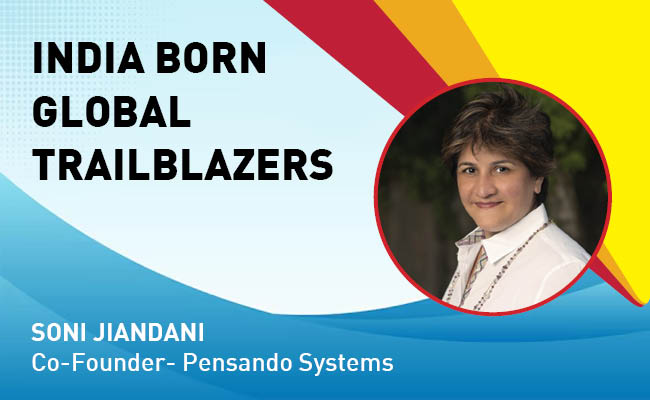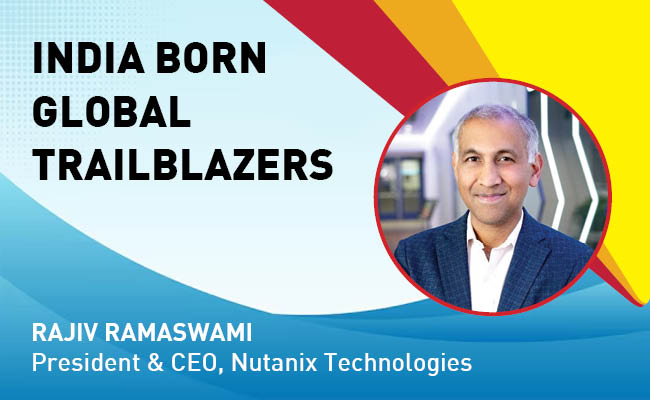The Rise of Cloud Computing and Services in India
By MYBRANDBOOK

Cloud computing has become a pivotal technology in the digital transformation journey of businesses worldwide. Innovations by companies such as OpenAI, Anthropic, and Gemini have significantly influenced the global AI and cloud landscape. In India, the cloud computing industry has witnessed substantial growth, driven by increasing digital adoption, a surge in start-ups, and a growing emphasis on data-driven decision-making.
Global Trends in Cloud Computing
Globally, the cloud computing market has been experiencing robust growth. According to Gartner, worldwide end-user spending on public cloud services is forecasted to grow by 20.4% in 2023, reaching a total of $591.8 billion, up from $490.3 billion in 2022. The COVID-19 pandemic has accelerated the adoption of cloud technologies as organizations seek agility, scalability, and cost efficiency.
Key trends shaping the global cloud computing landscape include multi-cloud and hybrid cloud adoption, edge computing, AI and ML integration, and serverless computing. Enterprises are increasingly adopting multi-cloud strategies to avoid vendor lock-in and leverage the best features of different cloud providers. Hybrid cloud, which combines on-premises infrastructure with public cloud services, is also gaining traction for its flexibility and control.
With the rise of Internet of Things (IoT) devices, edge computing is becoming essential. It involves processing data closer to the source of generation to reduce latency and bandwidth usage. This trend is particularly relevant in sectors like manufacturing, healthcare, and retail. Cloud providers are integrating AI and ML capabilities into their platforms, enabling businesses to leverage advanced analytics and automation. These technologies are being used for predictive maintenance, customer insights, and operational efficiencies. Serverless architectures are becoming popular due to their cost-effectiveness and ability to scale automatically. This model allows developers to focus on code without managing the underlying infrastructure.
Domestic Trends in Cloud Computing in India
India’s cloud computing market is on an upward trajectory, driven by the country’s digitalization efforts and a vibrant start-up ecosystem. According to a report by Nasscom, the Indian cloud market is expected to grow at a CAGR of 30% to reach $13 billion by 2025.
Key domestic trends include government initiatives, SME and start-up adoption, data localization laws, and sector-specific cloud solutions. The Indian government has launched several initiatives like Digital India and Smart Cities Mission, which are fueling the adoption of cloud services. These initiatives aim to improve governance, provide citizen-centric services, and boost economic development through technology. Small and Medium Enterprises (SMEs) and start-ups are leveraging cloud computing to scale rapidly, reduce IT costs, and innovate.
The ease of access to cloud infrastructure is enabling these businesses to compete with larger enterprises. India’s emphasis on data sovereignty has led to the implementation of data localization laws, requiring data to be stored within the country. This has prompted global cloud providers to establish data centers in India, enhancing data security and compliance. There is a growing demand for industry-specific cloud solutions tailored to sectors such as healthcare, education, and finance. These solutions address unique regulatory, operational, and security requirements.
Major Developments in 2023
The year 2023 has been eventful for the Indian cloud computing industry, with several major deals, investments, and strategic initiatives. Google Cloud announced the opening of a new cloud region in Delhi NCR, its second in India. This expansion aims to cater to the growing demand for cloud services in North India and provide enhanced performance and redundancy. Amazon Web Services (AWS) launched a new AWS Asia Pacific (Hyderabad) Region, marking its second infrastructure region in India. AWS’s continued investment in India underscores the strategic importance of the Indian market in its global operations. Microsoft Azure expanded its partnership with Jio Platforms to accelerate the adoption of cloud services across industries.
This collaboration focuses on developing innovative solutions in areas such as artificial intelligence, edge computing, and IoT. Oracle strengthened its presence in India by opening a second cloud region in Hyderabad. Oracle Cloud Infrastructure’s robust offerings are attracting enterprises looking for high performance, security, and cost savings. Both telecom giants, Reliance Jio and Bharti Airtel, have been aggressively expanding their cloud services. Jio’s partnership with Google Cloud and Airtel’s collaboration with AWS highlight their commitment to building robust cloud infrastructure and services.
Prominent Players in the Market
Several prominent players dominate the Indian cloud computing market, each offering a range of services and solutions.
Amazon Web Services (AWS): AWS remains a leader in the Indian market, offering a comprehensive suite of cloud services, including computing power, storage, and databases. Its focus on innovation and extensive partner ecosystem make it a preferred choice for businesses. AWS’s strengths include its broad range of services, global reach, and robust security measures. AWS has been pivotal in supporting the digital transformation of Indian enterprises, from start-ups to large corporations. AWS’s Elastic Compute Cloud (EC2), Simple Storage Service (S3), and its various machine learning and AI tools have been instrumental for businesses across sectors.
Microsoft Azure: Microsoft Azure’s strong enterprise focus and integration with Microsoft’s software products make it a popular choice among Indian enterprises. Azure’s hybrid cloud capabilities and AI-driven solutions are particularly appealing. The platform offers a range of services, from virtual machines to AI and analytics. Azure’s global presence, compliance offerings, and robust security framework are significant advantages for businesses looking to leverage cloud technologies. Azure’s services are extensively used in sectors such as finance, healthcare, and manufacturing, providing tailored solutions that meet industry-specific requirements.
Google Cloud: Google Cloud’s data analytics, AI, and machine learning capabilities are its key differentiators. Its commitment to expanding its infrastructure in India is driving adoption across various sectors. Google Cloud’s BigQuery, TensorFlow, and Anthos are popular among businesses for their powerful analytics and data processing capabilities. The opening of new cloud regions in India reflects Google Cloud’s strategic investment in the market, enhancing its ability to serve local customers with low-latency and high-performance services.
IBM Cloud: IBM Cloud leverages its expertise in AI and blockchain to offer robust cloud solutions. Its focus on hybrid cloud and industry-specific solutions is resonating with Indian businesses. IBM’s Watson AI services and blockchain platforms are particularly notable, providing businesses with tools to innovate and transform their operations. IBM Cloud’s strong emphasis on security, compliance, and enterprise-grade solutions makes it a preferred choice for large enterprises in sectors such as banking, healthcare, and logistics.
Oracle Cloud: Oracle’s strong presence in the enterprise software market extends to its cloud offerings. Oracle Cloud Infrastructure is known for its performance, security, and cost-effectiveness. Oracle’s Autonomous Database and advanced analytics services are widely used by businesses seeking robust data management solutions. The expansion of Oracle’s cloud regions in India underscores its commitment to providing scalable and secure cloud services to Indian enterprises.
Tata Communications: Tata Communications provides cloud and cybersecurity services tailored to Indian businesses. Its deep understanding of the local market and strong network infrastructure are significant advantages. Tata Communications’ cloud services are designed to meet the needs of Indian SMEs and large enterprises, offering flexibility, scalability, and robust security features.
Wipro and Infosys: IT services giants like Wipro and Infosys offer cloud consulting, migration, and management services. Their extensive experience in handling large-scale IT projects makes them reliable partners for cloud transformation. Both companies have developed strong cloud practices, leveraging partnerships with major cloud providers to deliver end-to-end cloud solutions.
HCL Technologies and NTT Ltd.: Other notable players include HCL Technologies, which offers a range of cloud services, and NTT Ltd., which focuses on hybrid cloud and edge computing solutions. These companies provide comprehensive cloud services, from strategy and consulting to implementation and management, helping businesses navigate their cloud journey effectively.
Outlook For 2024
India’s cloud computing and services industry is set for significant expansion in 2024, driven by increased digital transformation, widespread adoption of cloud technologies, and supportive government policies. Here’s a detailed look at the outlook for this dynamic sector:
Rapid Digital Transformation
Digital transformation initiatives across various industries are accelerating the adoption of cloud computing. Businesses are increasingly leveraging cloud services to enhance efficiency, scalability, and innovation. This trend is expected to continue in 2024, with more enterprises migrating their operations to the cloud to stay competitive in a digital-first world.
Government Initiatives and Policy Support
The Indian government’s push towards a digital economy is a major driver for the cloud computing industry. Policies aimed at promoting digital infrastructure, data localization, and cybersecurity are creating a conducive environment for cloud services growth. Initiatives like Digital India and the Smart Cities Mission are also spurring the demand for cloud solutions to support urban development and public services.
Growing Demand for Cloud Services
The demand for various cloud services, including Infrastructure as a Service (IaaS), Platform as a Service (PaaS), and Software as a Service (SaaS), is expected to rise significantly in 2024. Businesses of all sizes are adopting cloud solutions to improve operational efficiency, reduce costs, and enable remote work. The education, healthcare, and e-commerce sectors, in particular, are driving this demand.
Expansion of Data Center Infrastructure
The growth of cloud computing is closely tied to the expansion of data center infrastructure in India. Major cloud service providers like AWS, Microsoft Azure, and Google Cloud are investing heavily in building new data centers and expanding existing ones. These investments are aimed at enhancing data storage, processing capabilities, and providing low-latency services to customers across the country.
Advancements in Cloud Technologies
Technological advancements in areas such as artificial intelligence (AI), machine learning, big data analytics, and the Internet of Things (IoT) are driving the evolution of cloud services. In 2024, these technologies are expected to be integrated more deeply into cloud platforms, offering advanced capabilities for predictive analytics, automation, and intelligent decision-making.
Focus on Security and Compliance
As cloud adoption increases, so does the focus on security and compliance. Cloud service providers are enhancing their security frameworks to protect against cyber threats and ensure data privacy. Compliance with regulations such as the General Data Protection Regulation (GDPR) and India’s upcoming Personal Data Protection Bill is also a priority, driving the implementation of robust security measures.
Hybrid and Multi-Cloud Strategies
Organizations are increasingly adopting hybrid and multi-cloud strategies to leverage the best of different cloud environments. This approach allows businesses to optimize performance, enhance flexibility, and ensure redundancy. In 2024, the trend towards hybrid and multi-cloud deployments is expected to grow, supported by advancements in cloud orchestration and management tools.
Talent Development and Skill Enhancement
The growth of the cloud computing industry necessitates a skilled workforce. There is a strong focus on developing talent through training programs, certifications, and partnerships between industry and academia. In 2024, efforts to upskill IT professionals in cloud technologies, cybersecurity, and data management will be critical to meeting industry demands.


Legal Battle Over IT Act Intensifies Amid Musk’s India Plans
The outcome of the legal dispute between X Corp and the Indian government c...

Wipro inks 10-year deal with Phoenix Group's ReAssure UK worth
The agreement, executed through Wipro and its 100% subsidiary,...

Centre announces that DPDP Rules nearing Finalisation by April
The government seeks to refine the rules for robust data protection, ensuri...

Home Ministry cracks down on PoS agents in digital arrest scam
Digital arrest scams are a growing cybercrime where victims are coerced or ...


Icons Of India : Deepak Sharma
Deepak Sharma spearheads Schneider Electric India. He brings with him ...

Icons Of India : GAUTAM ADANI CHAIRMAN ADANI GROUP
Gautam Adani is the Founder and Chairman of the Adani Group, which ran...

Icons Of India : NATARAJAN CHANDRASEKARAN
Natarajan Chandrasekaran (Chandra) is the Chairman of Tata Sons, the h...


STPI - Software Technology Parks of India
STPI promotes and facilitates the growth of the IT and ITES industry i...

LIC - Life Insurance Corporation of India
LIC is the largest state-owned life insurance company in India...

GSTN - Goods and Services Tax Network
GSTN provides shared IT infrastructure and service to both central and...


Indian Tech Talent Excelling The Tech World - REVATHI ADVAITHI, CEO- Flex
Revathi Advaithi, the CEO of Flex, is a dynamic leader driving growth ...

Indian Tech Talent Excelling The Tech World - Soni Jiandani, Co-Founder- Pensando Systems
Soni Jiandani, Co-Founder of Pensando Systems, is a tech visionary ren...

Indian Tech Talent Excelling The Tech World - Rajiv Ramaswami, President & CEO, Nutanix Technologies
Rajiv Ramaswami, President and CEO of Nutanix, brings over 30 years of...
 of images belongs to the respective copyright holders
of images belongs to the respective copyright holders